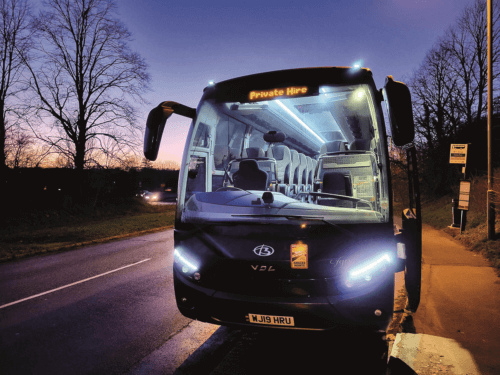
There are many options for coach operators when it comes to small capacity coaches. Richard Sharman takes a look at a used vehicle with a difference in this segment
Cast your mind back to the 1990s and early 2000s, before the advent of the 15m coach: a 10m coach was pretty much a standard default offering from many chassis manufacturers and body builders. How times have changed in 2023. Nowadays a coach of 10m is seen as small, and certainly looks it on the road in comparison to many of today’s long but manoeuvrable offerings.
So when a pair of relatively rare coaches came on the used coach market with a combination of a chassis built in the Netherlands and a body built in Spain, it was time to take a closer look.
Multi-generational
Beulas is a family business dedicated to the construction of bodywork whose origins date back to 1934, when wood was the main raw material used, subsequently giving way to the arrival of metal. The company was founded by Ramón Beulas. Joaquim Beulas together with Maria Teresa Pascual grew the company to the point it is at today, whilst Dolors and Glòria Beulas are currently in charge, with the fourth generation of the family also now part of the business.
Over the years, Beulas has not only managed to maintain its position within its sector, but has also stood out for an ability to adapt to change. The company says it prides itself on being able to offer a personalised product through manual manufacturing based on traditional craftsmanship.
[…]By subscribing you will benefit from:
- Operator & Supplier Profiles
- Face-to-Face Interviews
- Lastest News
- Test Drives and Reviews
- Legal Updates
- Route Focus
- Industry Insider Opinions
- Passenger Perspective
- Vehicle Launches
- and much more!


